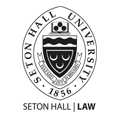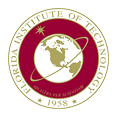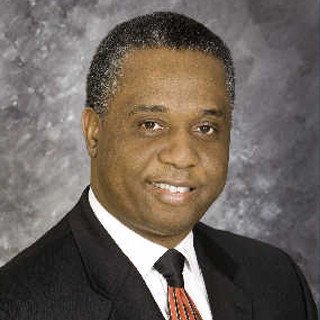I am a seasoned Patent Attorney with a Master’s Degree in Electrical Engineering, focusing on semiconductors, and a robust engineering background. My professional journey includes significant experience in assisting inventors, startups, and established companies with protecting, enforcing, and monetizing their intellectual property. My dual expertise in technical and legal fields positions me to offer strategic, results-oriented intellectual property counsel that enhances my clients' competitive edge.
My prior roles include working as a U.S. Patent Examiner and a Digital Design Engineer, which have equipped me with a deep understanding of the intricacies of patent law. My legal practice encompasses various activities, including drafting and prosecuting patent applications, re-examination, IP litigation, patent infringement, drafting patentability opinion letters, demand letters, and conducting due diligence.
I also offer guidance on intellectual property licensing, trademarks, trade secrets, and copyrights and address unfair competition and deceptive advertising issues. I am admitted in the State of New Jersey, the United States District Court of New Jersey, and the United States Patent & Trademark Office (USPTO).
In terms of my academic credentials, I obtained a J.D. from Seton Hall University School of Law in Newark, New Jersey, in 2003. I was also a Ph.D. candidate in Technology Management at Stevens Institute of Technology. I earned an MSEE from Florida Institute of Technology in Melbourne, FL, in 1993, and a BSEE from Bridgeport Engineering Institute in Bridgeport, CT, in 1986.
I have contributed to various publications and delivered presentations on IP. I co-authored “The need for signal claims” in IDEA: The Intellectual Property Law Review. Additionally, I have written several books, including "The Value of Your Idea$", “Do You Want To Be A Digital Entrepreneur," and "The App Developers’ Guide To Protecting Your Intellectual Property.”
- Intellectual Property
- Patents
- Patent Appeals, Patent Litigation, Patent Prosecution
- Trademarks
- Trademark Litigation, Trademark Registration
- Copyright Infringement
- Civil Litigation/Expert Witness
- Rights of Publicity (ROP)
- Contingent Fees
- New Jersey
-

- United States Patent & Trademark Office (USPTO)
- ID Number: 63,615
-

- 2nd Circuit
-

- French: Spoken, Written
- Spanish: Spoken, Written
- Patent Attorney - Patent Witness Expert
- COFFYLAW, LLC Intellectual Property & Business Law Attorneys
- - Current
- Perform the duties incumbent upon the manager of the firm. Additional duties include litigation support, patent expert witness, conduct expert interviews associated with litigation, patent infringement assessment including complaint drafting, claim construction and infringement chart construction, patentability opinion letter, cease-and-desist letter, demand letter, due diligence; Draft and prosecute new utility (including Business Method) and design patent applications, analyze Office Action in view of prior art, draft analysis letter and prepare reply to Office Action based on client’s response and instructions and conduct Examiner’s interview. Draft Appeal Briefs. Negotiate IP terms of agreement with marketing vendors in the context of a patent’s monetization.
- Patterson & Sheridan/Wall & Tong, LLP
- -
- Draft and prosecute new utility and design patent applications, analyze Office Action in view of prior art, draft analysis letter and prepare reply to Office Action based on client’s response and instructions. Draft appeal briefs. Lead major Reexam action. Counsel new clients in obtaining patents/trademarks to protect their innovations. Area of concentration include wireless communications network, Internet Protocol (IP) networks, Optical Transport Networks (OTN).
- Cozen O’Connor,
- -
- Duties included litigation support, conduct expert interviews associated with litigation, patent infringement assessment including complaint drafting, claim construction and infringement chart construction, patentability opinion letter, cease-and-desist letter, demand letter, due diligence; Drafted and prosecuted new utility (including Business Method) and design patent applications, analyzed Office Action in view of prior art, drafted analysis letter and prepared reply to Office Action based on client’s response and instructions. Drafted Appeal Briefs.
- Cozen O’Connor,
- -
- Duties included litigation support, conduct expert interviews associated with litigation, patent infringement assessment including complaint drafting, claim construction and infringement chart construction, patentability opinion letter, cease-and-desist letter, demand letter, due diligence; Drafted and prosecuted new utility (including Business Method) and design patent applications, analyzed Office Action in view of prior art, drafted analysis letter and prepared reply to Office Action based on client’s response and instructions. Drafted Appeal Briefs.
- THE FARRELL LAW FIRM, PC
- -
- Duties included analyze Office Action in view of prior art, draft analysis letter and prepared reply to Office Action based on client’s response and instructions. Prepared and filed new patent applications with USPTO. Drafted appeal briefs.
- United States Patent and Trademark Office (USPTO)
- -
- Successfully completed the USPTO Patent Academy. Examined and prosecuted for allowance patent applications dealing primarily with computer network and Internet in the Computer Networks Technology Center (TC 2157). Conducted interviews with practitioners and prepared response to amendments and appeals. Received performance award and recognized for quality examination practice.
- United States Patent and Trademark Office (USPTO)
- -
- Successfully completed the USPTO Patent Academy. Examined and prosecuted for allowance patent applications dealing primarily with computer network and Internet in the Computer Networks Technology Center (TC 2157). Conducted interviews with practitioners and prepared response to amendments and appeals. Received performance award and recognized for quality examination practice.
- Seton Hall University School of Law
- J.D. (2003) | Law
- -
-

- Stevens Institute of Technology
- Ph.D. | Technology Management
- -
-

- Florida Institute of Technology
- M.S. (1993) | Electrical Engineering
- -
-

- The Best Presenter Award
- HABNET
- New York City Council Citation
- New York City Council-Member Jumaane D. Williams
- New York City Council Citation
- New York City Council Member Matthieu Eugene
- Congressional Certificate of Special Recognition
- Honorable Congressperson Yvette Clark
- Academy of Court Appointed Neutrals (ACAN)
- Member
- - Current
-

- American Intellectual Property Law Association
- Member
- - Current
-

- American Bar Association # 00820965
- Member
- - Current
-

- Co-author of the book "Do You Want To Be A Digital Entrepreneur? What You Need To Know To Start And Protect Your Digital Based Knowledge Business"
- Trafford Publishing Company
- The Need for Signal Claims
- IDEA: The Intellectual Property Law Review
- IP Breakfast, Podcast, https://anchor.fm/albert-decady/episodes/IP-Breakfast--A-look-at-the-disparity-in-IP-with-Attorneys-A--Whittington--A--Decady-and-E--Coffy-ei86f1
- Registered Patent Attorney
- United States Patent and Trademark Office (USPTO)
- Q. Can using 10-sec movie clips for a quiz game on a website cause legal issues without licenses?
- A: Yes, using 10-second movie clips without licenses can potentially lead to legal issues. While "fair use" considers factors such as purpose, the length of the content used, and the impact on the original work's market value, using clips commercially or for entertainment purposes—like in a quiz game—usually does not automatically qualify as fair use. Even short clips can infringe copyrights if they’re recognizable and used commercially without explicit permission or licensing from rights holders. It's advisable to secure proper licenses or consult an intellectual property attorney before proceeding.
- Q. How to protect my SOS beacon light design despite finding a similar patent from 2010?
- A: The patent you discovered from 2010 might have been issued earlier but not initially indexed properly, making it less visible during your initial search.
To protect your new SOS beacon design, consider the following steps:
1. Evaluate Patentability:
Determine if your design offers distinct improvements or features that clearly differentiate it from the 2010 patent, such as unique functional elements or novel applications.
2. Conduct a Thorough Patent Search:
Engage a patent Attorney or professional to perform a comprehensive patentability search, ensuring no other similar intellectual property exists.
3. File for Patent Protection Promptly:
If your invention has novel aspects, ... Read More
- Q. Are patents created in marriage community property if not disclosed in divorce?
- A: Patents created during the marriage—whether individually or as part of a shared business—are typically considered community property and subject to division upon divorce, even if not disclosed initially. Because these patents and associated revenues were undisclosed during your 2017 divorce proceedings, you can file a legal action seeking to reopen or modify the divorce judgment on grounds of fraud, concealment, or nondisclosure. You may request the court to identify, value, and divide these undisclosed assets and income streams, potentially entitling you to a share of both past and future patent revenues. Consulting with a family law attorney promptly is crucial, as specific deadlines or ... Read More


 The Value of Your Idea$-TRF-BT-814365-with voice-AC
The Value of Your Idea$-TRF-BT-814365-with voice-AC
 CoffyLaw, LLC July 9, 2020 Webinar
CoffyLaw, LLC July 9, 2020 Webinar
 Boyer Coffy Commercial
Boyer Coffy Commercial
 CoffyLaw, LLC February 20, 2020 Webinar
CoffyLaw, LLC February 20, 2020 Webinar
 RISE COFFYLAW, LLC Nov 2020
RISE COFFYLAW, LLC Nov 2020
